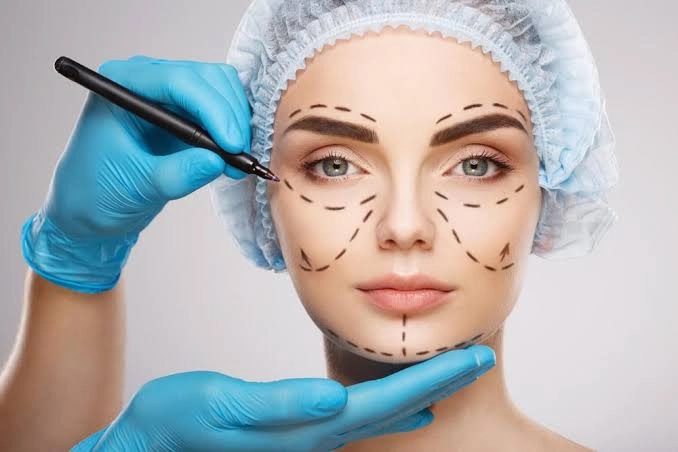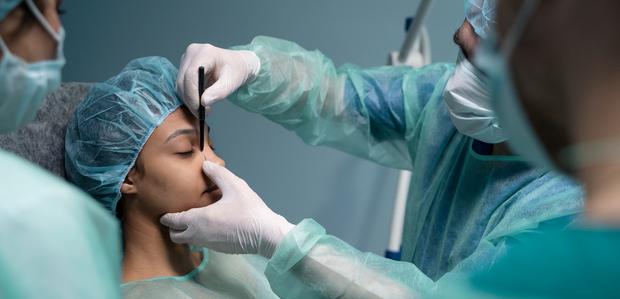Exploring the Emotional and Social Aspects That Drive People to Take Into Consideration Plastic Surgery as a way of Improvement
The decision to seek cosmetic surgery commonly prolongs past plain aesthetic appeals, linking with emotional and social dynamics that merit complete assessment. Variables such as self-confidence, prevalent social elegance criteria, and the prevalent influence of social media sites merge to shape private inspirations for medical enhancement. As these influences come to be increasingly prominent, comprehending the underlying social and psychological contexts is necessary. What continues to be to be discovered is the extensive impact these aspects have not just on individual identity but also on broader societal standards and worths surrounding charm and approval.
The Role of Self-worth
Self-worth considerably affects a person's decision to seek cosmetic surgical procedure. Individuals with reduced self-esteem often perceive themselves in an unfavorable light, leading to sensations of inadequacy concerning their physical look.

Eventually, the role of self-confidence in the decision-making process regarding cosmetic surgical procedure highlights the complex interplay in between body picture, individual complete satisfaction, and psychological health. Comprehending this connection is important for healthcare experts to make certain that individuals are making notified decisions rooted in sensible assumptions and psychological health.
Societal Charm Requirements
Influenced by prevalent media representations and social narratives, societal beauty standards play a critical duty fit individuals' perceptions of their own bodies. These criteria are frequently defined by an idyllic type of charm that highlights qualities such as proportion, slimness, and youthful vigor. As these perfects are continued with numerous networks, consisting of advertising and marketing, tv, and film, people often internalize these messages, causing discontentment with their natural appearance.
The ramifications of these societal standards extend beyond aesthetic choices; they can impact self-esteem, mental health, and social connections. Individuals who regard themselves as falling brief of these standards might experience feelings of insufficiency, prompting a need for cosmetic surgical procedure as a way of attaining societal authorization. This pursuit is frequently fueled by the belief that satisfying these perfects will certainly boost not only physical look yet additionally social standing and personal gratification.

Influence of Social Media Site
The influence of societal elegance standards is more intensified by the increase of social media systems, where curated images and idyllic representations of appeal are common. Users are continuously revealed to filtered and edited pictures, which typically show unattainable physical characteristics. This direct exposure cultivates a culture of contrast, leading individuals to analyze their own look versus these commonly unrealistic criteria.
Social media site influencers and stars often advertise cosmetic procedures, stabilizing the idea that surgical improvements are a viable ways for achieving societal suitables (plastic surgery rancho cucamonga). The exposure of these improvements can develop an assumption that going go to this website through cosmetic surgical procedure is a standard method, consequently affecting individuals to think about comparable treatments as a path to boosted self-esteem and social acceptance
Furthermore, the interactive nature of social media sites enables immediate feedback through likes and comments, even more strengthening the wish to satisfy preferred elegance criteria. learn this here now Such communications can exacerbate feelings of insufficiency and drive people toward plastic surgery as a way of getting validation. Inevitably, social media plays a critical function fit understandings of appeal, which dramatically influences the decision-making processes surrounding plastic surgery.

Cultural Perspectives on Appearance
Across different cultures, perceptions of appearance are deeply rooted in historical, social, and financial contexts, forming people' sights on appeal and worth. In several societies, look acts as a considerable marker of identity, influencing social condition, professional chances, and personal connections. For example, in some cultures, light skin is frequently connected with riches and opportunity, while others may idealize darker skin tones as symbols of toughness and credibility.
Additionally, typical appeal requirements are typically bolstered via cultural narratives, media depictions, and family affects, bring about differing suitables across various areas (plastic surgery rancho cucamonga). In Western cultures, the focus on young people and physical health and fitness commonly drives individuals towards aesthetic enhancement, while in particular Eastern societies, even more refined modifications straightened with standard looks might be chosen
Globalization and the spreading of digital media have actually better complicated these characteristics, producing a hybridization of beauty perfects that transcends geographical borders. As individuals significantly navigate these social narratives, the stress to comply with certain appearance requirements can bring about investigate this site the need for cosmetic surgical procedure, showing a complex interaction of cultural values and individual desires. Understanding these cultural viewpoints is important in attending to the motivations behind cosmetic surgical procedure factors to consider.
Psychological Impacts of Plastic Surgery
Several individuals seeking plastic surgery record experiencing extensive psychological impacts that can dramatically alter their self-perception and emotional wellness - plastic surgery rancho cucamonga. The wish for physical enhancement often stems from underlying issues such as low self-confidence, body dysmorphic condition, or societal pressures relating to elegance criteria. For some, the prompt post-operative stage can bring about a short-term boost in confidence and complete satisfaction with their appearance, cultivating a feeling of empowerment
Nonetheless, these positive feelings might not be withstanding. Research study suggests that while some patients experience boosted self-esteem, others may deal with elevated anxiousness or anxiety if their expectations are not met. This inconsistency can emerge from impractical perfects bolstered by media depiction and social narratives bordering elegance.
In addition, the mental ramifications of plastic surgery expand past the individual. Relationships with friends and family might be strained as social characteristics shift, causing sensations of isolation or alienation. Ultimately, the mental impacts of cosmetic surgery are complex and intricate, calling for cautious consideration by both potential patients and doctor to guarantee educated decision-making and sensible expectations.
Verdict
To conclude, the decision to seek cosmetic surgical treatment is significantly affected by a mix of self-worth issues, societal elegance standards, and social point of views on look. The prevalent reach of social networks further aggravates these pressures, promoting unrealistic perfects that individuals usually strive to obtain. Recognizing these social and emotional aspects is important for resolving the inspirations behind cosmetic surgery, highlighting the demand for an extra nuanced conversation surrounding beauty and self-acceptance in modern culture.
The decision to pursue cosmetic surgical procedure typically prolongs beyond mere visual appeals, linking with social and mental dynamics that merit detailed evaluation. Ultimately, social media plays a pivotal duty in shaping understandings of appeal, which dramatically affects the decision-making processes surrounding cosmetic surgical treatment.
As individuals progressively navigate these social stories, the pressure to adhere to certain appearance criteria can lead to the need for cosmetic surgery, reflecting a complicated interplay of individual ambitions and social worths.In verdict, the choice to pursue cosmetic surgical treatment is significantly influenced by a combination of self-esteem concerns, social beauty standards, and social viewpoints on appearance. Recognizing these mental and social variables is important for addressing the motivations behind cosmetic surgery, highlighting the need for an extra nuanced conversation bordering elegance and self-acceptance in contemporary society.